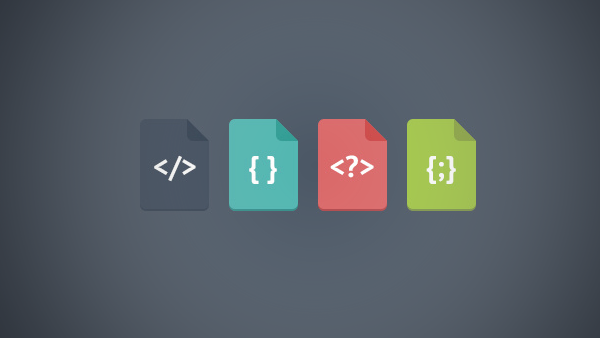Svg Sprite Icon教程介绍了如何将多个SVG图标整合为一个文件,减少网页加载时的HTTP请求次数,提高网页性能。该教程详细解释了Svg Sprite Icon的优势、应用场景、创建过程以及在项目中的使用方法,帮助开发者提升网站的加载速度和用户体验。
Svg Sprite Icon简介
Svg Sprite Icon是一种将多个SVG图标整合成单一文件的技术。每个单独的SVG图标被当作一个Sprite图的一部分,这样可以减少网页加载时的HTTP请求次数,从而提高网页的加载速度和性能。
什么是Svg Sprite Icon
Svg Sprite Icon是将多个SVG图标合并到一个文件中,这个文件被称为Sprite图标集。每个图标可以单独引用,通过CSS样式来定位和显示特定的图标。这种方式适用于需要使用多个小图标的应用场景,如导航图标、按钮图标等。
Svg Sprite Icon的优势与应用场景
Svg Sprite Icon具有以下几个优势:
- 减少HTTP请求次数:将多个小图标合并到一个文件中,可以显著减少网页加载时的HTTP请求次数,提高加载速度。
- 简化文件管理:多个图标可以集中管理,减少文件数量,便于维护。
- 样式一致性:所有图标可以使用统一的样式设置,保持视觉一致性。
- 兼容性好:SVG格式在现代浏览器中广泛支持,兼容性良好。
应用场景包括:
- 网站导航图标
- 社交媒体图标
- 按钮图标
- 图表及各类小图标
准备工作
在开始创建Svg Sprite Icon之前,需要确保你拥有一套基本的开发工具。
必要的工具介绍
- 文本编辑器:如VS Code、Sublime Text、Atom等。这些编辑器支持语法高亮、自动补全等功能,极大地提高了开发效率。
- 浏览器:如Chrome、Firefox等。你需要一个支持现代Web技术的浏览器来进行测试和调试。
- 图形设计软件:如Adobe Illustrator、Inkscape等。这些软件可以用来创建SVG图标。
创建简单的Svg Icon实例
以下是创建一个简单的SVG图标的基本步骤。假设我们要创建一个简单的圆形图标。
<svg xmlns="http://www.w3.org/2000/svg" width="24" height="24" viewBox="0 0 24 24" fill="none" stroke="currentColor" stroke-width="2" stroke-linecap="round" stroke-linejoin="round" class="svg-icon">
<circle cx="12" cy="12" r="10"></circle>
</svg>这段代码定义了一个直径为20像素的圆,中心点位于坐标(12, 12)。
在实际项目中,你可能需要将这个简单的SVG图标应用到HTML中。例如:
<!DOCTYPE html>
<html>
<head>
<meta charset="UTF-8">
<title>使用简单的SVG图标的示例</title>
<link rel="stylesheet" href="styles.css">
</head>
<body>
<div class="svg-icon">
<svg xmlns="http://www.w3.org/2000/svg" width="24" height="24" viewBox="0 0 24 24" fill="none" stroke="currentColor" stroke-width="2" stroke-linecap="round" stroke-linejoin="round">
<circle cx="12" cy="12" r="10"></circle>
</svg>
</div>
</body>
</html>对应的CSS样式:
.svg-icon {
display: inline-block;
width: 24px;
height: 24px;
}创建Svg Sprite Icon
将多个SVG图标整合为一个Svg Sprite Icon,可以通过手动整合或使用在线工具和软件来简化过程。
如何将多个Svg Icon整合为Sprite
将多个SVG图标整合为Sprite通常涉及以下几个步骤:
- 将多个SVG图标保存为独立的文件。
- 将这些文件合并到一个SVG文件中。
- 在合并后的SVG文件中为每个图标定义一个唯一的ID。
- 通过CSS定位和显示特定的图标。
例如,假设有两个SVG图标icon1和icon2,合并后的Sprite图标集代码示例如下:
<svg xmlns="http://www.w3.org/2000/svg" width="24" height="24" viewBox="0 0 24 24" fill="none" stroke="currentColor" stroke-width="2" stroke-linecap="round" stroke-linejoin="round" class="svg-sprite">
<symbol id="icon1" viewBox="0 0 24 24">
<circle cx="12" cy="12" r="10"></circle>
</symbol>
<symbol id="icon2" viewBox="0 0 24 24">
<line x1="12" y1="5" x2="12" y2="19"></line>
<line x1="5" y1="12" x2="19" y2="12"></line>
</symbol>
</svg>使用在线工具和软件简化过程
使用在线工具和软件可以简化Svg Sprite Icon的创建过程。例如,可以使用 IcoMoon 或 IconJar 等工具来导入SVG图标并自动生成Sprite图标集。这些工具通常提供图形界面,方便拖拽图标进行操作,并自动生成兼容的SVG代码。
在项目中使用Svg Sprite Icon
在实际项目中使用Svg Sprite Icon,需要将Sprite图标集引入到项目中,并通过CSS来定位和显示所需的图标。
如何在网页中引用Svg Sprite Icon
首先,将Sprite图标集通过HTML引入到项目中:
<!DOCTYPE html>
<html>
<head>
<meta charset="UTF-8">
<title>使用Svg Sprite Icon的示例</title>
<link rel="stylesheet" href="styles.css">
</head>
<body>
<svg class="svg-sprite" aria-hidden="true">
<symbol id="icon1" viewBox="0 0 24 24">
<circle cx="12" cy="12" r="10"></circle>
</symbol>
<symbol id="icon2" viewBox="0 0 24 24">
<line x1="12" y1="5" x2="12" y2="19"></line>
<line x1="5" y1="12" x2="19" y2="12"></line>
</symbol>
</svg>
</body>
</html>然后,使用CSS来引用和显示特定的图标:
.icon1 {
background: url('sprite.svg#icon1') no-repeat;
background-size: contain;
width: 24px;
height: 24px;
}
.icon2 {
background: url('sprite.svg#icon2') no-repeat;
background-size: contain;
width: 24px;
height: 24px;
}在HTML中使用类来显示图标:
<div class="icon1"></div>
<div class="icon2"></div>常见的错误及解决办法
- 图标未正确显示:检查SVG文件路径是否正确,确保引用的ID与实际存在的ID一致。
- 图标大小不一致:确保每个图标具有相同的 viewBox 属性。
- 图标样式不一致:检查CSS样式是否正确应用,确保每个图标具有相同的填充和描边样式。
Svg Sprite Icon的优化
优化Svg Sprite Icon可以进一步提高其性能和可维护性。
压缩Svg Sprite Icon文件的方法
压缩SVG文件可以减少文件大小,提高加载速度。可以通过压缩工具如 SVGO 来实现。
npx svgo input.svg -o output.svg样式调整与兼容性考虑
- 样式调整:可以通过CSS调整图标的颜色、大小等属性。例如:
.icon1 {
background: url('sprite.svg#icon1') no-repeat;
background-size: contain;
width: 24px;
height: 24px;
}- 兼容性考虑:确保SVG文件在所有支持SVG的现代浏览器中都能够正确显示。测试不同浏览器中的表现,并进行必要的调整。
实战演练
设计一个完整的Svg Sprite Icon实例,包括创建图标、整合为Sprite、在项目中使用,并分享一些经验与技巧。
设计一个完整的Svg Sprite Icon实例
首先,创建几个SVG图标:
<!-- icon1.svg -->
<svg xmlns="http://www.w3.org/2000/svg" viewBox="0 0 24 24">
<circle cx="12" cy="12" r="10" fill="currentColor"></circle>
</svg>
<!-- icon2.svg -->
<svg xmlns="http://www.w3.org/2000/svg" viewBox="0 0 24 24">
<line x1="12" y1="5" x2="12" y2="19" stroke="currentColor"></line>
<line x1="5" y1="12" x2="19" y2="12" stroke="currentColor"></line>
</svg>然后,将这些图标整合为一个Svg Sprite Icon文件:
<svg xmlns="http://www.w3.org/2000/svg" viewBox="0 0 24 24" style="display: none;">
<symbol id="icon1" viewBox="0 0 24 24">
<circle cx="12" cy="12" r="10" fill="currentColor"></circle>
</symbol>
<symbol id="icon2" viewBox="0 0 24 24">
<line x1="12" y1="5" x2="12" y2="19" stroke="currentColor"></line>
<line x1="5" y1="12" x2="19" y2="12" stroke="currentColor"></line>
</symbol>
</svg>在项目中引用并使用这些图标:
<!DOCTYPE html>
<html>
<head>
<meta charset="UTF-8">
<title>使用Svg Sprite Icon的示例</title>
<link rel="stylesheet" href="styles.css">
</head>
<body>
<svg class="svg-sprite" aria-hidden="true">
<symbol id="icon1" viewBox="0 0 24 24">
<circle cx="12" cy="12" r="10" fill="currentColor"></circle>
</symbol>
<symbol id="icon2" viewBox="0 0 24 24">
<line x1="12" y1="5" x2="12" y2="19" stroke="currentColor"></line>
<line x1="5" y1="12" x2="19" y2="12" stroke="currentColor"></line>
</symbol>
</svg>
<button class="icon1"></button>
<button class="icon2"></button>
</body>
</html>对应的CSS样式:
.icon1 {
background: url('sprite.svg#icon1') no-repeat;
background-size: contain;
width: 24px;
height: 24px;
}
.icon2 {
background: url('sprite.svg#icon2') no-repeat;
background-size: contain;
width: 24px;
height: 24px;
}分享经验与技巧
- 使用Consistent命名规则:在为图标命名时,尽量使用一致的命名规则,方便维护和查找。
- 统一图标大小:确保所有图标具有相同的 viewBox 属性,以保持大小一致。
- 压缩SVG文件:使用工具如SVGO来压缩SVG文件,减少文件大小,提高加载速度。
- 测试兼容性:在多种浏览器中测试Svg Sprite Icon的表现,确保在所有支持SVG的现代浏览器中都能正常显示。
通过上述步骤,你可以有效地使用Svg Sprite Icon来优化网页加载速度和提升用户体验。

 随时随地看视频
随时随地看视频




